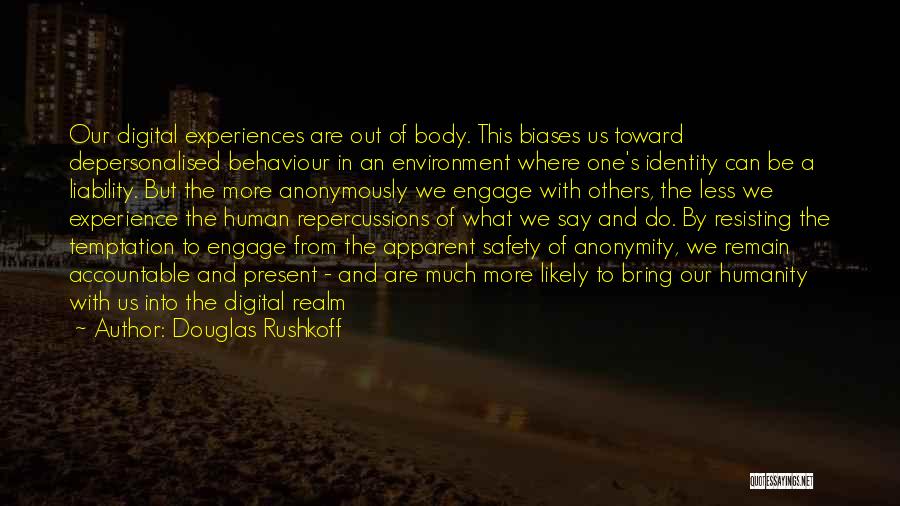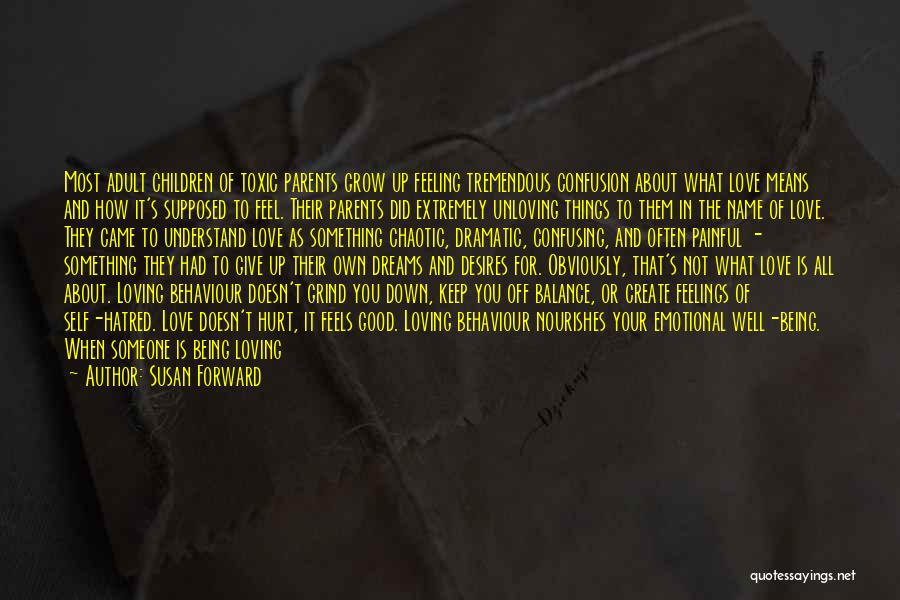Behaviour Safety Quotes & Sayings
Enjoy reading and share 4 famous quotes about Behaviour Safety with everyone.
Top Behaviour Safety Quotes

Our digital experiences are out of body. This biases us toward depersonalised behaviour in an environment where one's identity can be a liability. But the more anonymously we engage with others, the less we experience the human repercussions of what we say and do. By resisting the temptation to engage from the apparent safety of anonymity, we remain accountable and present - and are much more likely to bring our humanity with us into the digital realm — Douglas Rushkoff

Most adult children of toxic parents grow up feeling tremendous confusion about what love means and how it's supposed to feel. Their parents did extremely unloving things to them in the name of love. They came to understand love as something chaotic, dramatic, confusing, and often painful - something they had to give up their own dreams and desires for. Obviously, that's not what love is all about. Loving behaviour doesn't grind you down, keep you off balance, or create feelings of self-hatred. Love doesn't hurt, it feels good. Loving behaviour nourishes your emotional well-being. When someone is being loving to you, you feel accepted, cared for, valued, and respected. Genuine love creates feelings of warmth, pleasure, safety, stability, and inner peace. — Susan Forward

Good character keeps good brand safely. Bad character destroys hard earned brands. — Israelmore Ayivor

The usual sniggering examples of animal behaviour were brought in to explain cheating. Funny how the behaviour of shrews and gibbons is never used to explain table manners or road safety or gardening, only sex. Anyway, it was bad Darwinism. Taking the example of a monkey and applying it to yourself misses the point that animal behaviour is made for the benefit of the species, not as an excuse for the individual. Being incapable of sustaining a stable pair and supporting children is really not in the interests of our species. Neither is it really in the best interests of the philanderer. — A.A. Gill





